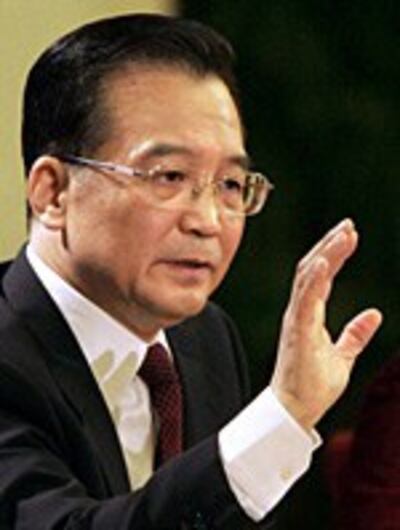
China will find it difficult to meet Premier Wen Jiabao’s goal of reducing the country’s rate of energy use by 4 percent this year, analysts say.
Wen announced the energy-savings target in presenting the government’s work report at the opening of the National People’s Congress on March 5.
Experts interviewed by Radio Free Asia said that China will find it “difficult” or “impossible” to meet this goal after several years of soaring energy demand.
“Personally, I think that this is an extremely challenging goal,” said David Fridley, leader of the China Energy Group at the U.S. Department of Energy’s Lawrence Berkeley National Laboratory in California.
To try to accomplish an improvement of efficiency of 4 percent or so in ten months would just be very difficult without shutting down big segments of the economy, and I don’t think the government’s willing to do something as drastic as that,
Fridley said that much of China’s recent rise in consumption has been driven by investment using steel and other products that require massive amounts of energy to produce.
Cutting back on that growth would take a major effort, Fridley said.
Jason Feer, Singapore bureau chief for the industry weekly Petroleum Argus, agreed. There is little chance, said Feer, that China can reduce rates of energy use by 4 percent this year without a “significant disruption of the economy.”
Given that part of 2006 has already passed, this year’s goal may already be beyond reach, Feer said.
“To try to accomplish an improvement of efficiency of 4 percent or so in ten months would just be very difficult without shutting down big segments of the economy, and I don’t think the government’s willing to do something as drastic as that.”
China’s efficiency target could also require the government to end its system of price controls for fuels, including gasoline, in order to promote more efficient use. Officials have floated plans for market pricing or for more frequent price adjustments, but the government has shied away from increases since last May for fear of angering consumers.
Feer said that Wen’s goal will force officials to face the price problem again.
“It’s very clear,” he added, “that if they’re going to accomplish these energy efficiency targets in the long run, they’re going to have to restructure the domestic market, and that means they’re going to have to lift the existing price controls on diesel, gasoline, and some other fuels.”
However, other analysts are more optimistic that China’s target can be achieved.
Philip Andrews-Speed, a China energy expert at the University of Dundee in Edinburgh, Scotland, noted that China increased its energy efficiency by an annual average of 4.5 percent throughout the 1980s and most of the 1990s.
“And that was achieved both through the gradual restructuring of the economy and specific measures to increase energy efficiency in plants and in homes.”
The problem now is that China’s economy has expanded and become more an open market, Andrews-Speed said. “Old administrative measures” may no longer work, he added.
Andrews-Speed noted that it may be difficult, too, to measure China’s progress with statistics.
“Energy statistics in China are a nightmare, anyway. So just knowing what is valid, what is accidentally wrong, or what is deliberately distorted is very difficult to work out.”
Original reporting by Michael Lelyveld. Edited for the Web by Richard Finney.
